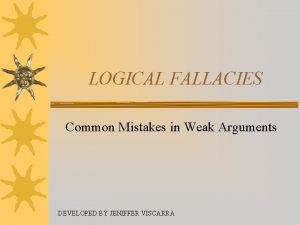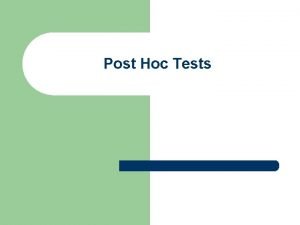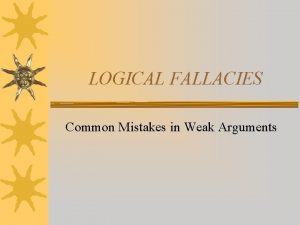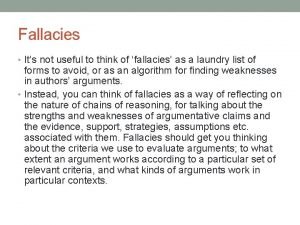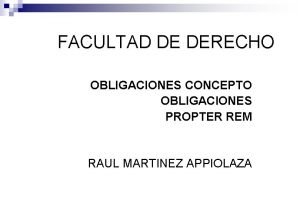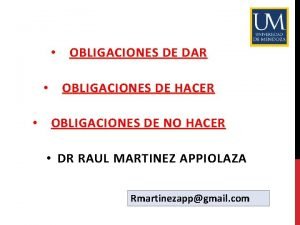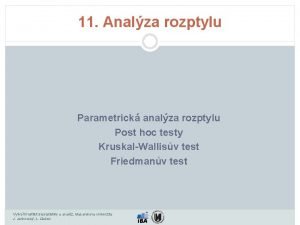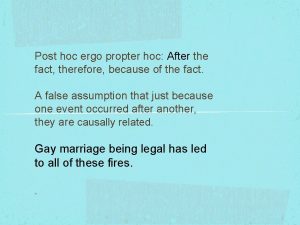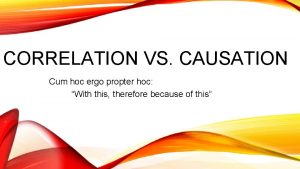FALLACIES of LOGIC Post Hoc Ergo Propter Hoc











- Slides: 11

FALLACIES of LOGIC

Post Hoc, Ergo Propter Hoc “After this, therefore because of this. ”

Card Stacking • Using only the evidence that supports a thesis and ignoring evidence that contradicts or weakens it.

Slanting • Variation of card stacking • Using words whose connotations suggest extreme approval or disapproval

Hasty Generalization • Your stereotypes about a group are based on insufficient (limited) evidence.

Overgeneralization • Regardless of the evidence, you assume all members of a group, nationality, race, or sex have certain characteristics. • Look for words such as all, never, always, every, true, untrue

Non Sequitur • “It does not follow. ” • A conclusion that does not follow from the premises. • No connection between the premise and the conclusion

Ignoring the Question • A speaker intentionally or unintentionally shifts emphasis from the topic under discussion. • A question can be ignored in several ways:

Ignoring the Question • Ad Hominem – making an irrelevant attack on a person rather than dealing with the issue. • Straw Man Argument – attributing to the opposition actions or beliefs of which the opposition is not guilty and then attacking the opposition for those actions or beliefs

Ignoring the Question • Begging the Question Assuming something that really needs to be proved. • Shifting the burden of proof • Circular Argument – restating the premise instead of giving a reason for holding the premise

Either/Or • suggesting there are only two alternatives when, in fact, there may be more.
